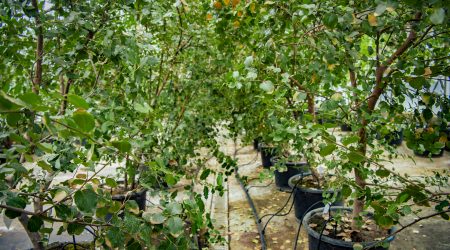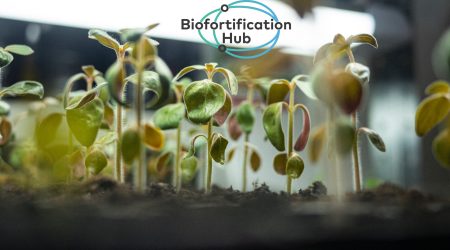Norwich scientists win international award in bid to solve antibiotic resistance

Norwich Research Park scientists have won a prestigious international award for a breakthrough that could help the fight against antibiotic resistance.
Professor David Russell from University of East Anglia’s School of Chemistry, in collaboration with Professor Rob Field from the John Innes Centre, were recognised for their method of performing a rapid diagnostic test to quickly identify bacterial pathogens.
At an award ceremony held at the Royal Society in London, the team was presented with a prestigious Longitude Prize Discovery Award which supports the development of a diagnostic device for anti-microbial resistance (AMR), one of the biggest challenges facing modern medicine.
Based on dipping a tiny sample into a solution of sugar labelled with gold, the system provides a quick diagnosis, with results being indicated by a rapid colour change. The simple ‘dipstick ‘ test is much faster than existing methods of testing, removing the need to send samples on for laboratory testing and allowing much faster decisions to be made about appropriate antibiotic treatment.
Russell and Field started the company Iceni Diagnostics, a joint spin-out from the John Innes Centre and the UEA based at the Norwich Research Park’s Innovation Centre, in 2014 in order to explore the potential of this new technology. They received seed funding from Iceni Seedcorn Fund at end of September.
They are one of 12 winning teams who will use the prize to develop their technology and compete for the coveted Longitude Prize, a challenge with a £10 million prize fund to reward a point of care diagnostic test that most fully addresses the global problem of bacterial antibiotic resistance.
Prof Russell said: “We are delighted to be awarded this prestigious, highly competitive award. This discovery award has given us further motivation that we are working on an important international medical problem and heading in the right direction to try and solve the problem of bacterial resistance to antibiotics.”
Professor Rob Field said: “It is great to receive recognition for our efforts to take basic science through to potential products for medicine and agriculture. The JIC-UEA team have been working on these topics for more than ten years, but it is with the establishment of our joint spin-out Iceni Diagnostics that we began to achieve the necessary momentum to translate academic discovery into end-user devices”
Professor Dale Sanders, Director of the John Innes Centre said: “This award recognises the great potential of Professor Field and Professor Russell’s research. Once developed the diagnostic could dramatically reduce unnecessary use of antibiotics, helping to address the global threat of drug-resistant infections which are killing up to 50,000 people every year in Europe and the US alone. We are proud to host Professor Field’s laboratory at the John Innes Centre and congratulate him and the Iceni Diagnostics team on winning this award.”
UEA vice-chancellor Professor David Richardson said: “Winning a Longitude Prize Discovery Award is a significant and prestigious achievement for Professors Rob Field and David Russell and all the team at Iceni Diagnostics. This is a young spin-out company from UEA and the John Innes Centre undertaking vital applied research to help healthcare professionals diagnose whether an infection is caused by bacteria or viruses within just 15 minutes. The benefits of this research are considerable and range from human health to agriculture.”



